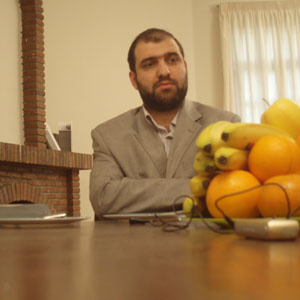Algiers Accord, the Best Platform for Solving the Dispute
By Seyed Mohsen Hakim, Islamic Supreme Council of Iraq representative to Iran

Over the last two days, media have focused on the alleged incursion of Iranian troops into the Iraqi territory and seizure of a well in Fakkah oil field. The problem is not devoid of history of course. It is part of the broader border dispute between Iran and Iraq which has lingered for years, even after the 1975 Algiers Accord signed by Mohammad Reza Pahlavi and Saddam Hussein. With the signing of the accord at that time, joint groups were formed to draw lines of demarcation between the two countries. Unfortunately, the project was left unfinished and to make it worse, the lines were eliminated during the 8-year war of 1980s. Since three years ago, Iran and Iraq have engaged into serious for reaching an agreement to form new workgroups that can finish the demarcation project.
Fakkah is not a new story. The oil field is claimed by both sides, but international law is the best resource to provide solutions to the disagreement. Instead of taking the issue to the media, Iran and Iraq should solve the issue through negotiating and exchanging information. Nothing stops them from forming a joint committee to put an end to the dispute. Tehran-Baghdad ties have reached a level that does not give a chance to fake turbulences. Both countries tend to resolve the problem via diplomatic means and based on international law. Thus, there is no need to broadcast propaganda against any of the involved parties. Those against warm Tehran-Baghdad ties are the only ones who reap the fruit of tension between the two neighboring countries.
There have been several cases of dispute between Iran and Iraq over oil fields that lie along the shared borders. It was about six months ago when the media reported the seizure of an Iranian oil field by the Iraqi army. But when the two countries share three oil fields (Azadegan, Yadavaran and Hoveizeh) the best approach is to develop a mechanism that removes disagreements permanently. The Algiers Accord signed on 6th of March 1975 has discussed border and territorial issues in detail. The mechanism proposed in the treaty provides a platform to remove any misunderstanding.
Fakkah is not a new story. The oil field is claimed by both sides, but international law is the best resource to provide solutions to the disagreement. Instead of taking the issue to the media, Iran and Iraq should solve the issue through negotiating and exchanging information. Nothing stops them from forming a joint committee to put an end to the dispute. Tehran-Baghdad ties have reached a level that does not give a chance to fake turbulences. Both countries tend to resolve the problem via diplomatic means and based on international law. Thus, there is no need to broadcast propaganda against any of the involved parties. Those against warm Tehran-Baghdad ties are the only ones who reap the fruit of tension between the two neighboring countries.
There have been several cases of dispute between Iran and Iraq over oil fields that lie along the shared borders. It was about six months ago when the media reported the seizure of an Iranian oil field by the Iraqi army. But when the two countries share three oil fields (Azadegan, Yadavaran and Hoveizeh) the best approach is to develop a mechanism that removes disagreements permanently. The Algiers Accord signed on 6th of March 1975 has discussed border and territorial issues in detail. The mechanism proposed in the treaty provides a platform to remove any misunderstanding.

